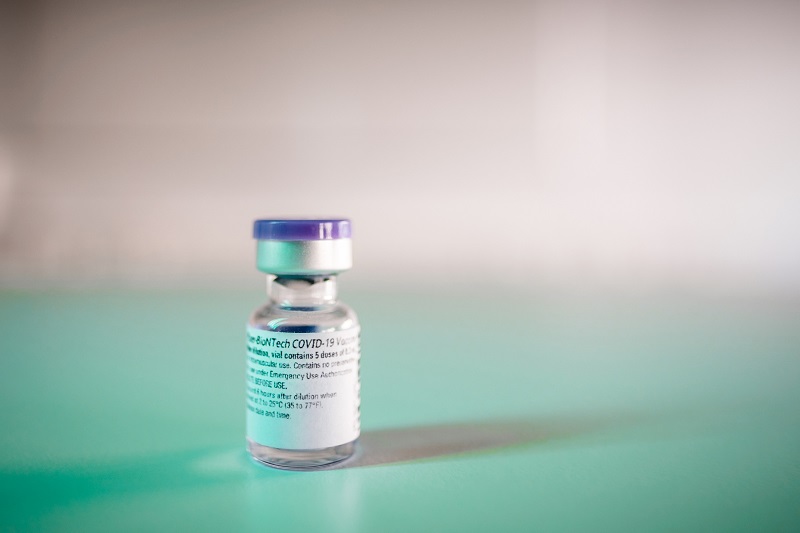Week's news analysis
Covid-19: four vaccines at a glance

With the FDA's authorization, end of February, for the use of the Johnson & Johnson coronavirus vaccine in adults, the world scientific community now has four different vaccines at its disposal to fight the pandemic.
The Johnson & Johnson vaccine is a viral vector vaccine. Its approach is similar to the AstraZeneca-Oxford Covid-19 vaccine, while the Moderna and Pfizer-BioNtech vaccines are both mRNA vaccines. The J&J vaccine uses a harmless virus, called an adenovirus, to carry a genetic code. The Pfizer and Moderna vaccines are made using messenger RNA, or mRNA, a technology that delivers a bit of genetic code to cells.
- According to the FDA's analysis, in the US, the Johnson & Johnson Covid-19 vaccine was 72% effective at preventing all Covid-19 and 86% effective at preventing severe cases of the disease. The two-dose Pfizer and Moderna shots were 95% protective against symptomatic Covid-19. The Johnson & Johnson vaccine is also efficient against variants. In South Africa, with a different variant virus, the vaccine reduced severe or critical Covid-19 by 81.7 % starting 28 days after vaccination. It was 64 % effective against more moderate disease. The South African government switched to J & J's vaccines, instead of using Novavax or AstraZeneca vaccine. End of February, Moderna announced that it had manufactured the initial batch of an updated version of its Covid-19 vaccine designed to better protect against the B.1.351 variant of SARS-CoV-2 first identified in South Africa. Doses of this new candidate (mRNA-1273.351), have been shipped to the US National Institute of Allergy and Infectious Diseases for testing in a Phase I clinical trial pending a greenlight from the FDA.
- If both of the mRNA-based vaccines require two shots, the Johnson & Johnson vaccine requires only a single dose. It can also be stored for at least three months at much warmer temperatures than the mRNA vaccines, in a regular refrigerator. The mRNA vaccines must be shipped and stored at below-freezing or subzero temperatures and require a complicated cold chain to safely distribute them. But things can change as in the past weeks, the Food and Drug Administration reviewed data submitted by the companies on the stability of the doses at normal freezer temperatures (-25°C to -15°C). On February 25, the agency issued new guidance that says the vaccine can be safely shipped and stored for up to two weeks at these relatively higher temperatures. The companies initially launched the vaccine with the -80°C to -60°C temperature requirement because that was the temperature range at which they produced the doses used in their clinical trials. As a consequence, the alternative temperature for transportation and storage will help ease the burden of procuring ultra-low cold storage equipment for vaccination sites and should help to get vaccine to more sites.
- Johnson & Johnson will deliver fewer doses than the 10 million the US government previously expected. It has 4 million doses to ship immediately, and expects to hit a target of 100 million by the end of June. Europe has also ordered 200 million doses in 2021 and the company has recently added capacity to fill vials with its agreement with Sanofi Pasteur. It aims to produce about 1 billion doses globally by the end of the year. Meanwhile, Pfizer-BioNTech have contracted to deliver 200 million doses to locations in the US by May, and hope to ship 2 billion doses globally by the end of the year. Vaccine giant Sanofi has agreed to help Pfizer and BioNTech and to produce 100 million doses of their mRNA vaccine for Europe this year. End of February, AstraZeneca says it is still aiming to supply the EU with 180 million doses of its Covid-19 vaccine AZD1222 in the second quarter. The drugmaker had agreed supply up to 400 million doses to the bloc as part of a deal with the EU reached last August, but has since had to revise its delivery schedule. At Moderna, new investments in its manufacturing facilities is allowing it to boost production capacity, with the company now expecting to make about 1.4 billion doses of its Covid-19 vaccine in 2022. The company has also raised its projected production to 700 million doses from 600 million previously and the company continues to target supplying up to 1 billion doses. It expects to generate $18.4 billion from sales of its vaccine this year, whereas Pfizer has announced $15 billion sales of its vaccine.
RELATEDCovid-19: The race for vaccine production capacities
